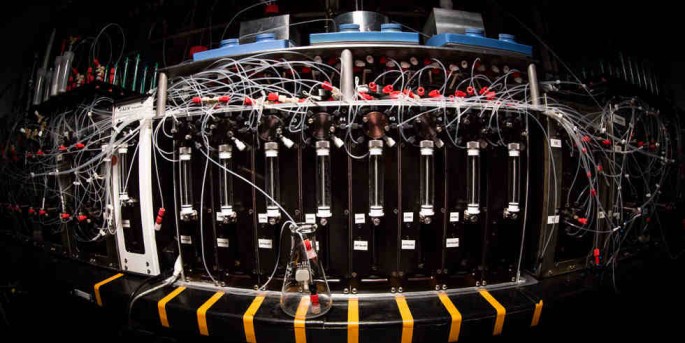A group of researchers at the University of Illinois is able to develop an upgraded generation of 3D printers which is able to construct tiny, complex molecules to push medical treatments further than where it is, the Science Journal published, Friday.
Martin D. Burke, the lead researcher, has revealed the specs of Chemistry's own 3D printer- a machine which could synthesize thousands of molecules systematically from just a handful of chemicals, including the molecular family Ratanhine.
This machine will not only produce Ratanhine step-by-step, also custom create other closely-related chemicals, including those that were never synthesized in the past. Scientists could now test varied molecular family's medicinal properties, thoroughly.
Burke shared that with the innovation of this machine, everyone can try a taste of becoming a scientist with just a tick.
"The vision is that anybody could go to a website, pick the building blocks they want, instruct their assembly through the web, and the small molecules would get synthesized and shipped," the Phys Org reported.
The university professor has also explained that this can also assist pharmaceutical companies in their synthesis, saying that the barrier that the process has established between medicine and manufacturing companies will be put down.
"Up to now, the bottleneck has been synthesis. There are many areas where progress is being slowed, and many molecules that pharmaceutical companies aren't even working on, because the barrier to synthesis is so high," the professor shared.
"It is expected that the technology will similarly create new opportunities in other therapeutic areas as well, as the industrialization of the technology will help refine and broaden its scope and scalability," he added.
Burke is also the founder of Revolution Medicines, a group that is licensed to develop technology for automated synthesis.



























